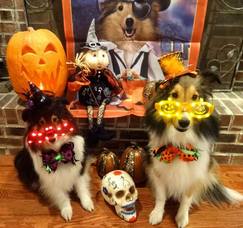What is Feline Lower Urinary Tract Disease?
One of the most common reasons people take their cats to the veterinarian is because of urinary tract problems. When the bladder is not able to empty correctly due to infection, bladder stones, blockage of the urethra (urethral plug) or inflammation, your cat may be diagnosed with Feline Lower Urinary Tract Disease (FLUTD). Feline Lower Urinary Tract Disease (FLUTD) is a term to describe a variety of conditions that affect the bladder and urethra of cats. The most common conditions include: infections, inflammation, idiopathic, cystitis, urolithiasis (stones) and urethral obstruction (plugs). Symptoms of FLUTD:
- Urinating outside the box
- Straining to urinate
- Frequent trips to the litter box
- Excessive licking of their private area
- Crying out while urinating
- Visible blood in the litter box
While FLUTD can occur at any age, it is often seen in middle-aged, overweight cats that get little exercise, use an indoor litter box, have little or no outdoor access, and tend to eat a dry diet. Factors such as emotional or environment stress, multi-cat households, and abrupt changes in daily routine may also increase the risk that a cat will develop FLUTD. If you suspect a urinary tract problem, it is important for you to seek veterinary care and find the underlying cause. Your veterinarian will usually conduct a physical exam, a urinalysis, urine culture, bloodwork and possibly x-rays and/or an ultrasound.
Once the cause is determined, using a few natural supplements along with making important diet changes can be life-changing for your cat. Please be sure to include your cat's diet and treats on the order form at checkout and we will provide a few diet tips on the packing slip that comes with your AskAriel.com order.
Supplements for Cats with FLUTD and Bladder Conditions
Power Probiotic--fights infection and yeast--promotes the growth of good “friendly” bacteria in the urinary tract. All natural, safe and absolutely no fillers! Taking antibiotics can reduce the population of friendly bacteria, increasing the possibility of yeast and decreasing your pet's overall immunity. Power Probiotic replenishes healthy bacteria helping your pet fight off further infection.
Akutur - provides pain relief in the urinary tract, reduces inflammation and helps restore balance in the bladder and pelvic floor--especially important for interstitial cystitis
NotaSAN-infection fighter--this homeopathic remedy is excellent for long-term use to support a healthy immune system and prevent infections from returning. These easy to administer, tasteless drops are a best seller for cats.
Diet Changes: Diet is a huge issue when it comes to managing bladder infections, FLUTD and cystitis. It's important that you take a look at all of your pet's food, table scraps and treats to ensure you are not feeding any grains, allergens such as dairy, fish or poultry, or dry food. Starchy carbohydrates can contribute to chronic urinary tract problems, especially gluten containing grains such as rice.
Please include your cat's diet and treats on the order form at checkout. Based on the information you provide, we will include a diet suggestion for your pet on the packing slip that comes with your product directions.







